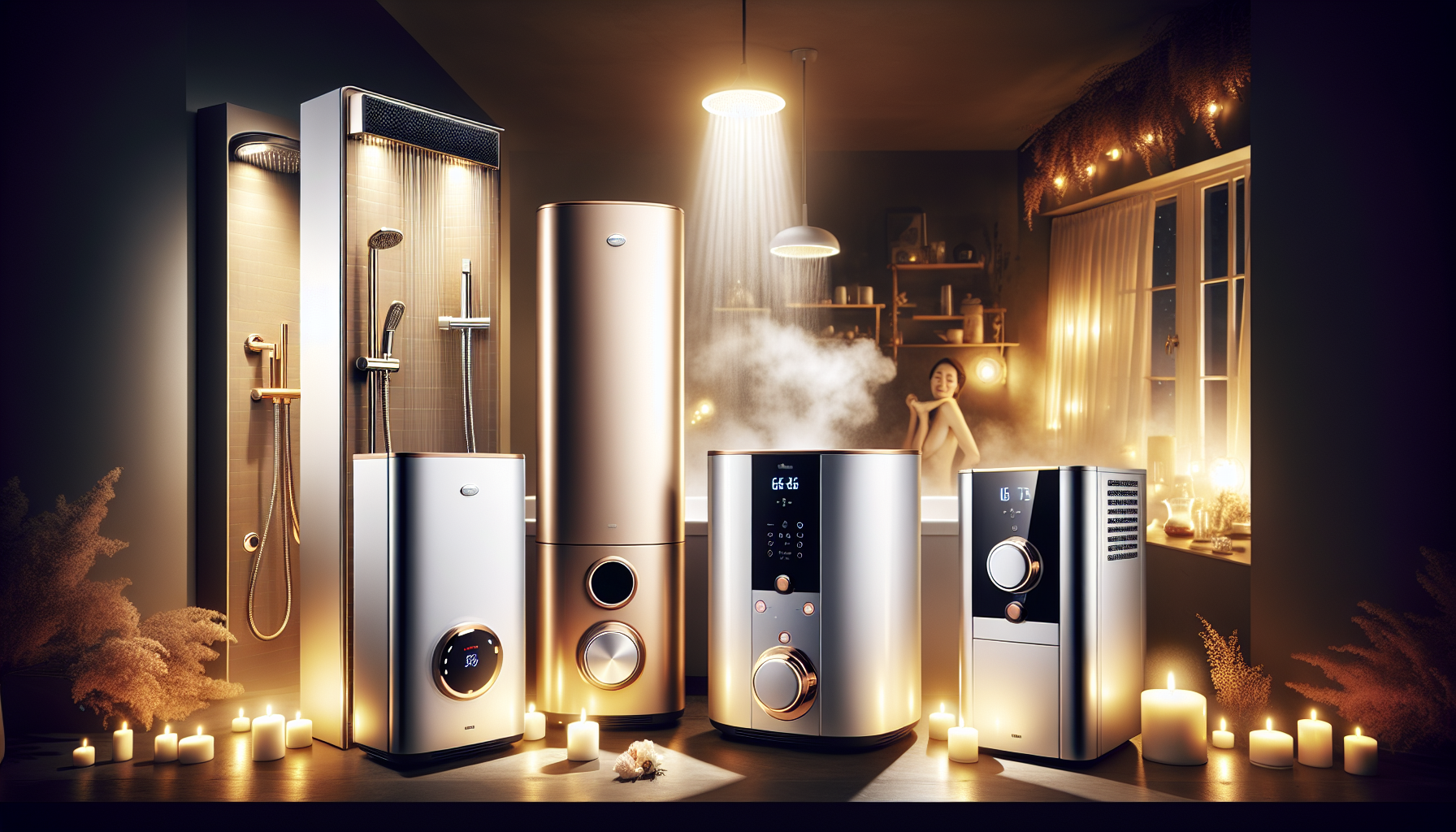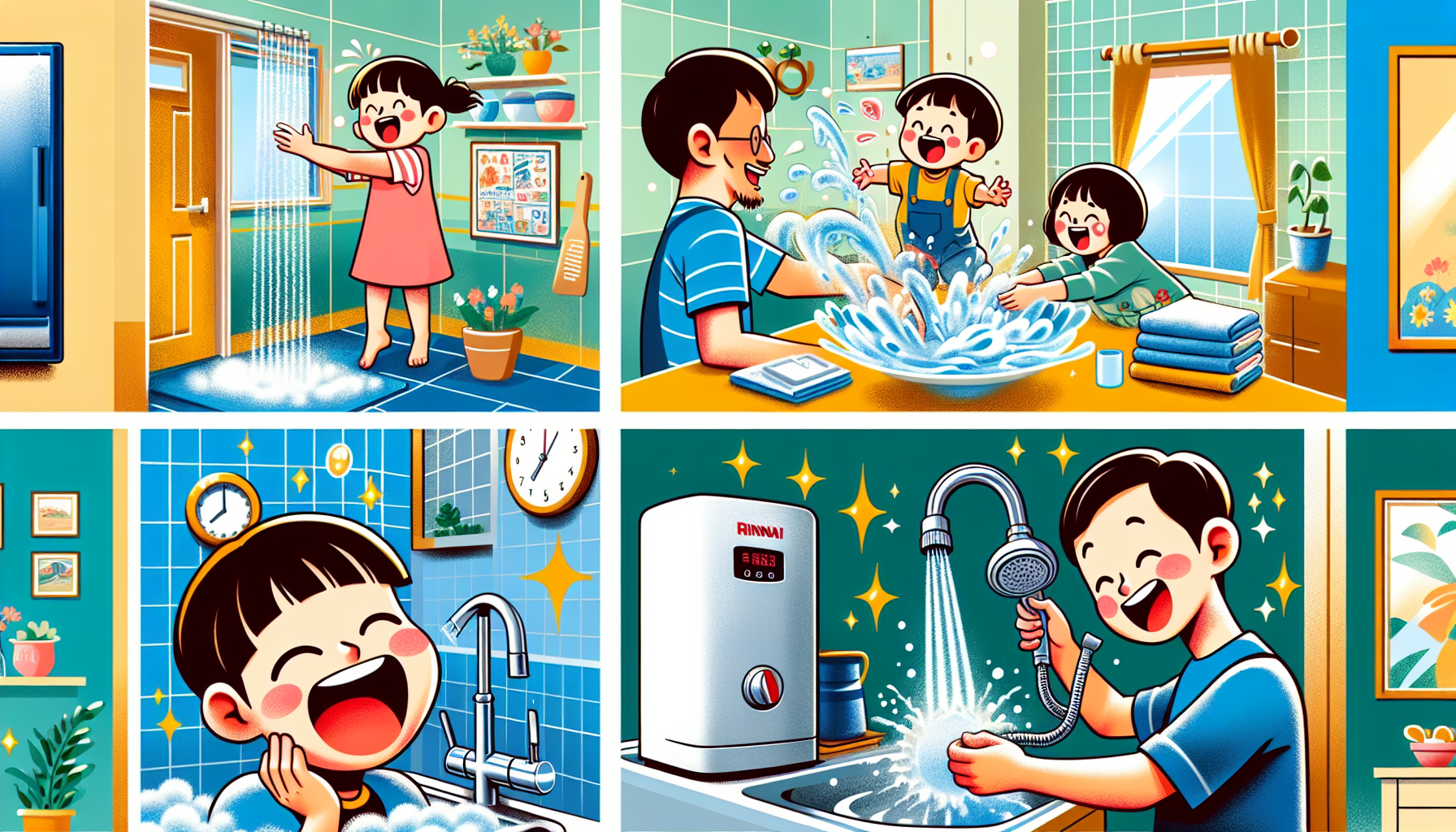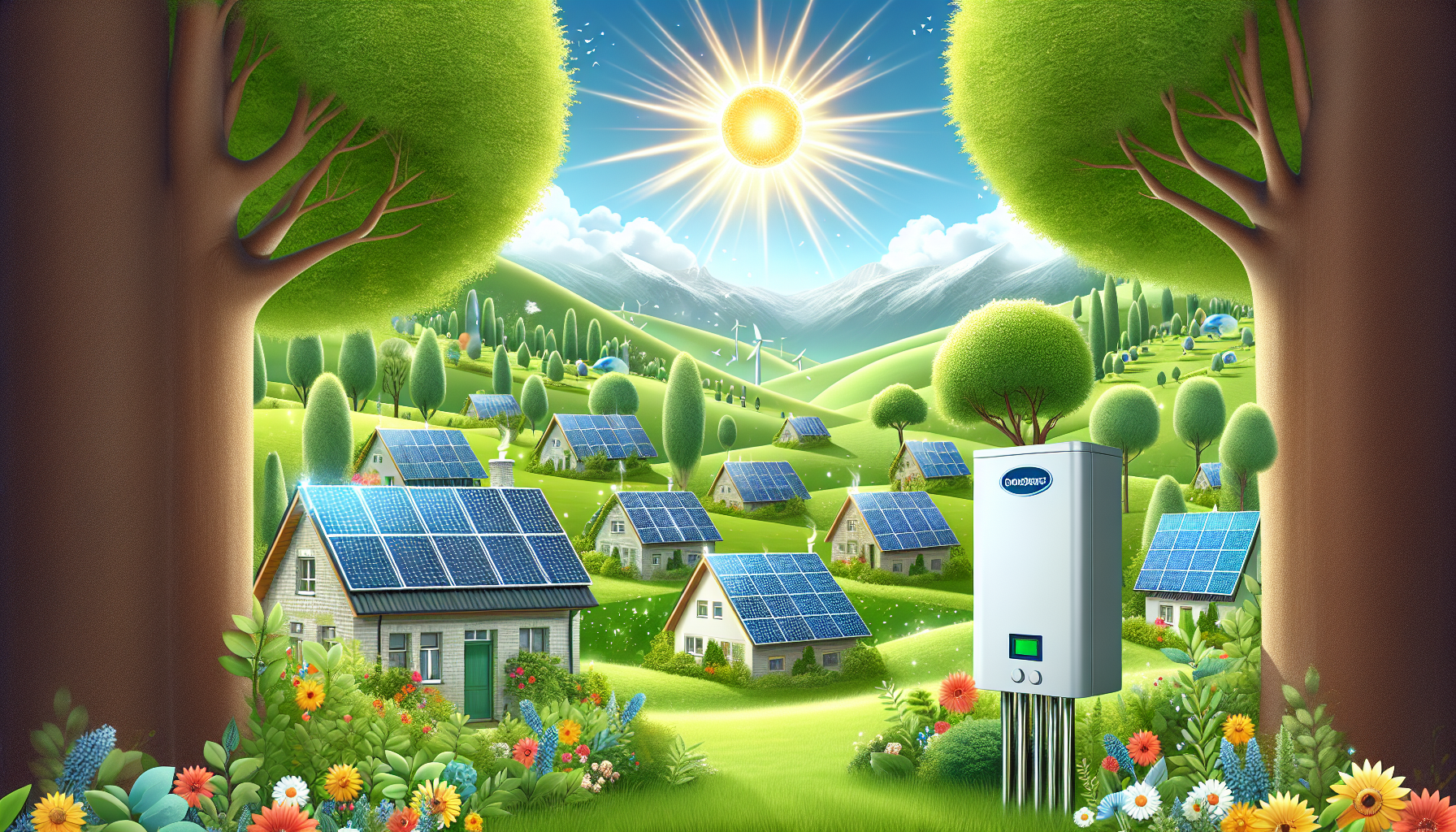Top Rinnai Electric Hot Water System Reviews & Ratings
Are Rinnai electric hot water system reviews reliable and efficient? In this review, we’ll cover performance, customer feedback, and overall value to help you decide.
Key Takeaways
-
Rinnai electric hot water systems offer a wide range of tank sizes and energy-efficient designs, catering to diverse household needs while promoting eco-friendly practices.
-
The reliability and consistent performance of Rinnai systems are lauded by users, although some have reported issues with warranty claims and customer service.
-
Despite higher initial costs, Rinnai electric hot water systems provide value for money through significant energy savings and durable, advanced technology features.
Overview of Rinnai Electric Hot Water Systems

Rinnai electric hot water systems offer a versatile solution for households of all sizes. They are also a cost-effective choice for your hot water needs. Whether you require a small unit for an apartment or a larger tank for a family home, Rinnai offers a wide variety of products and model variations to meet individual household needs.
The Rinnai Hotflo series, in particular, is designed to reliably provide hot water within the typical temperature range for electric systems. When selecting a Rinnai hot water system or considering existing hot water systems, it’s important to consider factors such as household water usage, household size, location, and climate.
Exploring the specifics reveals what makes these systems stand out.
Variety of Tank Sizes
Rinnai electric hot water systems are available in a full range of tank sizes, from compact 25-litre units to expansive 400-litre models. This variety ensures that Rinnai can cater to diverse household hot water requirements, whether it’s for a small apartment or a large family home.
A 125-litre electric hot water system is typically recommended for medium-sized households. This size strikes a balance between capacity and efficiency, providing enough hot water to meet daily needs without excessive energy consumption. The flexibility in tank sizes allows homeowners to choose a unit that perfectly fits their specific hot water needs.
Design and Build Quality
The design and build quality of Rinnai electric hot water systems are key factors in their reputation for reliability. The Rinnai Hotflo tanks are constructed using vitreous enamel-lined steel, which significantly enhances their durability and longevity. This robust construction ensures that the tanks can withstand the rigours of daily use.
The enhanced sacrificial anode in Rinnai Hotflo tanks offers superior corrosion protection, further extending the system’s lifespan. These features contribute to the system’s durability and provide users with the confidence that their investment will last for many years.
Energy Efficiency Features
Rinnai electric hot water systems are designed with energy efficiency in mind, making them a cost-effective solution for eco-conscious consumers. The Rinnai Hotflo series supports energy savings and is compatible with solar hot water systems, enhancing both versatility and environmental sustainability.
The energy ratings of these systems are impressive, with the medium-sized model boasting a 4.7-star rating and the HotFlo 10 model achieving a remarkable 5.6 stars. The Coefficient of Performance (COP) for the Rinnai Hotflo series and the Rinnai Enviroflo V2 is 7.22, indicating high efficiency. These ratings reflect the systems’ ability to minimize electricity usage and lower energy bills.
Rinnai’s commitment to energy-efficient operation not only reduces running costs but also fosters environmental preservation. Choosing a Rinnai electric hot water system allows homeowners to enjoy an efficient hot water supply and contribute to a greener planet.
Performance and Reliability

When it comes to performance and reliability, Rinnai electric hot water systems excel in providing a consistent and reliable supply of hot water. Users have praised these systems for their ability to maintain a steady hot water supply even during periods of high demand, ensuring comfort and convenience.
The durability and minimal downtime of Rinnai systems further enhance their reputation for reliable performance. The aspects of consistent supply, maintenance and durability, and advanced system controls all contribute to the overall performance of Rinnai hot water systems.
Consistent and Reliable Supply
Rinnai electric hot water systems are engineered to deliver a steady and dependable supply of hot water. They operate within the standard temperature range expected for electric systems. This reliability is particularly appreciated during peak demand times, where the system’s performance remains steady without significant fluctuations.
While many users have positive experiences with the consistent hot water supply, some have reported mixed results regarding product reliability and customer service. Despite these occasional issues, the overall feedback highlights the system’s effectiveness in meeting household hot water needs and providing a reliable hot water solution.
Maintenance and Durability
The warranty provided with Rinnai electric hot water systems gives users a sense of security about their investment. However, some customers have reported significant issues with warranty claims, particularly unexpected labor costs associated with repairs.
Common issues such as leaking tanks and thermostat failures have been reported after several years of use, raising concerns about long-term reliability. These maintenance issues highlight the importance of choosing a system with a robust warranty and reliable customer service to ensure long-term satisfaction.
Advanced System Controls
Rinnai electric hot water systems are equipped with advanced system controls that prioritize user safety and performance. Features like the thermostatically controlled system and safety temperature shut-off ensure optimal performance and prevent scalding, enhancing overall user satisfaction.
These smart features significantly improve the user experience by providing a safe and clean and hot water efficient hot water supply.
Cost Considerations

Cost is a crucial factor when selecting a hot water system, and Rinnai electric hot water systems come with various cost considerations. These include:
-
the initial purchase price
-
installation expenses
-
ongoing energy consumption
-
maintenance costs
Although the initial costs of Rinnai systems can be high, their energy-efficient nature helps offset these expenses over time through energy savings. Examining the specific cost aspects, including installation and running costs, is essential.
Installation Costs
The installation costs for Rinnai electric hot water systems generally range between $450 and $1,800, depending on the specific model and installation requirements. However, unexpected additional costs, such as labor fees not disclosed upfront, can lead to higher expenses.
Many customers have expressed dissatisfaction with the higher-than-expected installation costs, which can be attributed to these unforeseen fees. Obtaining a detailed quote before installation helps avoid unexpected expenses.
Running Costs
Rinnai electric hot water systems are designed to be cost-effective by utilizing energy-efficient technologies. This design helps users reduce their overall electricity costs, contributing to significant energy savings over time. Annual energy costs for these systems typically range from $700 to $925, depending on individual water usage patterns.
By focusing on demand-based heating, Rinnai systems help lower overall electricity consumption, which also reduces the household’s carbon footprint.
Customer Reviews and Testimonials

Customer reviews and testimonials provide valuable insights into the real-world performance of Rinnai electric hot water systems. Users generally perceive Rinnai hot water systems as high-end products, appreciating their consistent performance and advanced technology features.
While customers report high satisfaction levels, they also highlight some common issues and complaints. Exploring both the positive experiences and common complaints from Rinnai users provides a balanced view.
Positive Experiences
Many users report high levels of satisfaction with Rinnai electric hot water systems, citing their reliability and consistent performance. The quality of materials and build is frequently highlighted in customer testimonials, contributing to overall positive sentiments.
Additionally, users appreciate the advanced technology features and energy efficiency of these systems, which help reduce their utility bills significantly. These factors enhance the comfort and convenience of daily life, including the benefits of electric storage.
Common Complaints
Common issues reported by Rinnai Hotflo electric hot water system users include leaking tanks and pressure valve problems. These issues can affect the reliability of the system and lead to user frustration.
Customers have also experienced slow response times to service calls and difficulties with warranty claims, including unexpected additional costs. These complaints highlight the importance of prompt and efficient customer service in maintaining user satisfaction.
Environmental Impact

Rinnai electric hot water systems are designed to promote environmental sustainability by reducing energy consumption and carbon emissions. These systems contribute to a reliable hot water supply while supporting eco-friendly living practices. Rinnai Australia is committed to providing innovative solutions in this field.
By being compatible with renewable energy sources, Rinnai systems help users lower their energy costs and enhance environmental efficiency. Let’s delve into the energy-efficient design and how these systems help reduce the carbon footprint.
Energy Efficient Design
The Rinnai Hotflo series is designed to be compatible with various renewable energy sources, enhancing its energy efficiency. This compatibility includes models that can integrate seamlessly with solar photovoltaic systems, providing additional energy savings and reducing reliance on non-renewable energy.
Incorporating renewable energy sources and energy-efficient designs, Rinnai electric hot water systems significantly reduce both energy consumption and associated costs. This not only helps in lowering energy bills but also promotes environmental sustainability by minimizing waste and optimizing energy use.
Reducing Carbon Footprint
Rinnai electric hot water systems play a crucial role in reducing a household’s carbon footprint by lowering energy consumption. These systems are designed to promote environmental sustainability on a larger scale by decreasing overall energy use.
Minimizing energy consumption, Rinnai electric hot water systems help households reduce their carbon emissions and support a more sustainable lifestyle. This makes them an excellent choice for those looking to make eco-friendly improvements to their homes without compromising on performance.
Comparative Analysis
Comparing Rinnai electric hot water systems with other brands is essential to understanding their position in the market. Overall, Rinnai systems demonstrate superior performance in consistent hot water supply and advanced technology compared to many competitors.
When considering features and reliability, Rinnai electric hot water systems often provide better value for money compared to similar products from other manufacturers. This section will delve into the competitor comparison and the value for money offered by Rinnai systems.
Competitor Comparison
Rinnai Hotflo electric hot water systems are known for their competitive installation prices. However, they may lack some advanced smart features found in higher-end models from competitors, which can give other brands an edge in terms of technology. Additionally, Rinnai systems may incur higher long-term operational expenses compared to some competitors.
Recent issues with batch leaking problems have also raised concerns among users. Despite these challenges, Rinnai remains a strong contender in the market due to its reliable performance and overall cost-effectiveness.
Value for Money
Rinnai electric hot water systems come with various cost considerations, including the initial purchase price and installation costs that can vary based on customer requirements. Despite the higher initial costs, the energy-efficient operation of Rinnai systems helps offset these expenses over time through significant energy savings on bills.
Customer reviews indicate a high level of satisfaction with the value for money offered by Rinnai systems. Many users cite the reliable performance and energy efficiency as key factors in their positive experiences, making Rinnai a worthwhile investment.
Summary
In summary, Rinnai electric hot water systems offer a versatile and cost-effective solution for households of all sizes. Their range of tank sizes, robust design and build quality, and impressive energy efficiency features make them a reliable choice for consistent hot water supply.
Despite some concerns with installation costs and long-term maintenance, the overall performance and customer satisfaction levels are high. Rinnai systems contribute to environmental sustainability and provide good value for money, making them a solid investment for eco-conscious homeowners. When you choose a Rinnai hot water system, you’re not just investing in a product—you’re investing in comfort, efficiency, and a greener future.
Frequently Asked Questions
What is the most efficient electric hot water system?
The most efficient electric hot water system is a heat pump water heater, which can be 2-3 times more energy efficient than traditional electric storage systems by extracting heat from the ambient air. This makes them particularly suitable for mild to hot climates.
What tank sizes are available for Rinnai electric hot water systems?
Rinnai electric hot water systems offer a range of tank sizes from 25 litres to 400 litres, ensuring there’s an option for every household's hot water requirements.
How energy-efficient are Rinnai electric hot water systems?
Rinnai electric hot water systems, particularly the Hotflo series, are very energy-efficient, achieving energy ratings up to 5.6 stars and a Coefficient of Performance (COP) of 7.22. This efficiency significantly reduces energy consumption and can help lower your energy bills.
What are some common issues reported by Rinnai hot water system users?
Common issues reported by Rinnai hot water system users include leaking tanks, pressure valve problems, and slow customer service response times. Additionally, difficulties with warranty claims and unexpected costs have also been noted.
How do Rinnai hot water systems contribute to environmental sustainability?
Rinnai hot water systems enhance environmental sustainability by being energy-efficient and compatible with renewable energy sources, effectively lowering energy consumption and carbon emissions. This commitment to efficiency supports the transition to cleaner energy solutions.






















